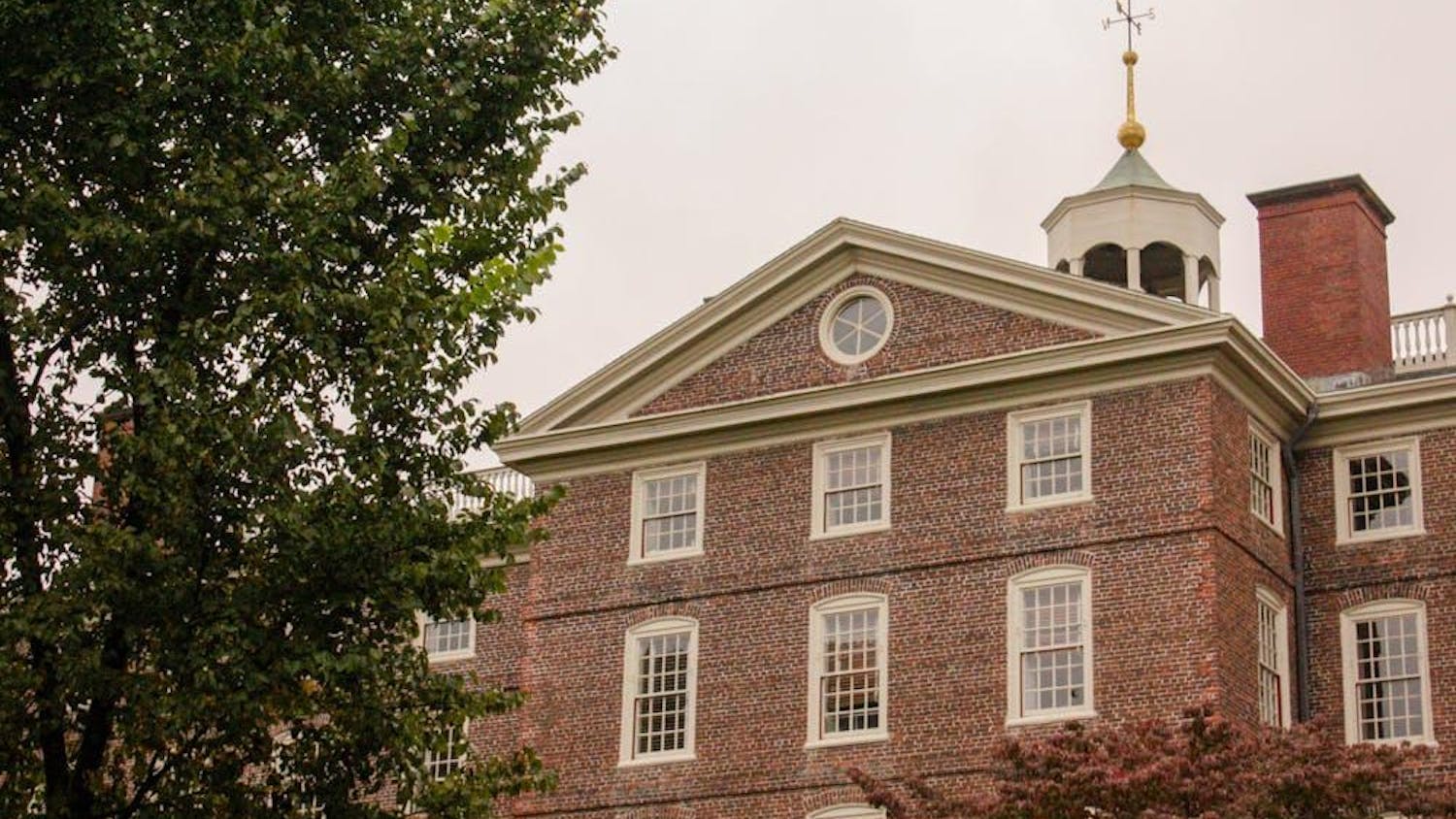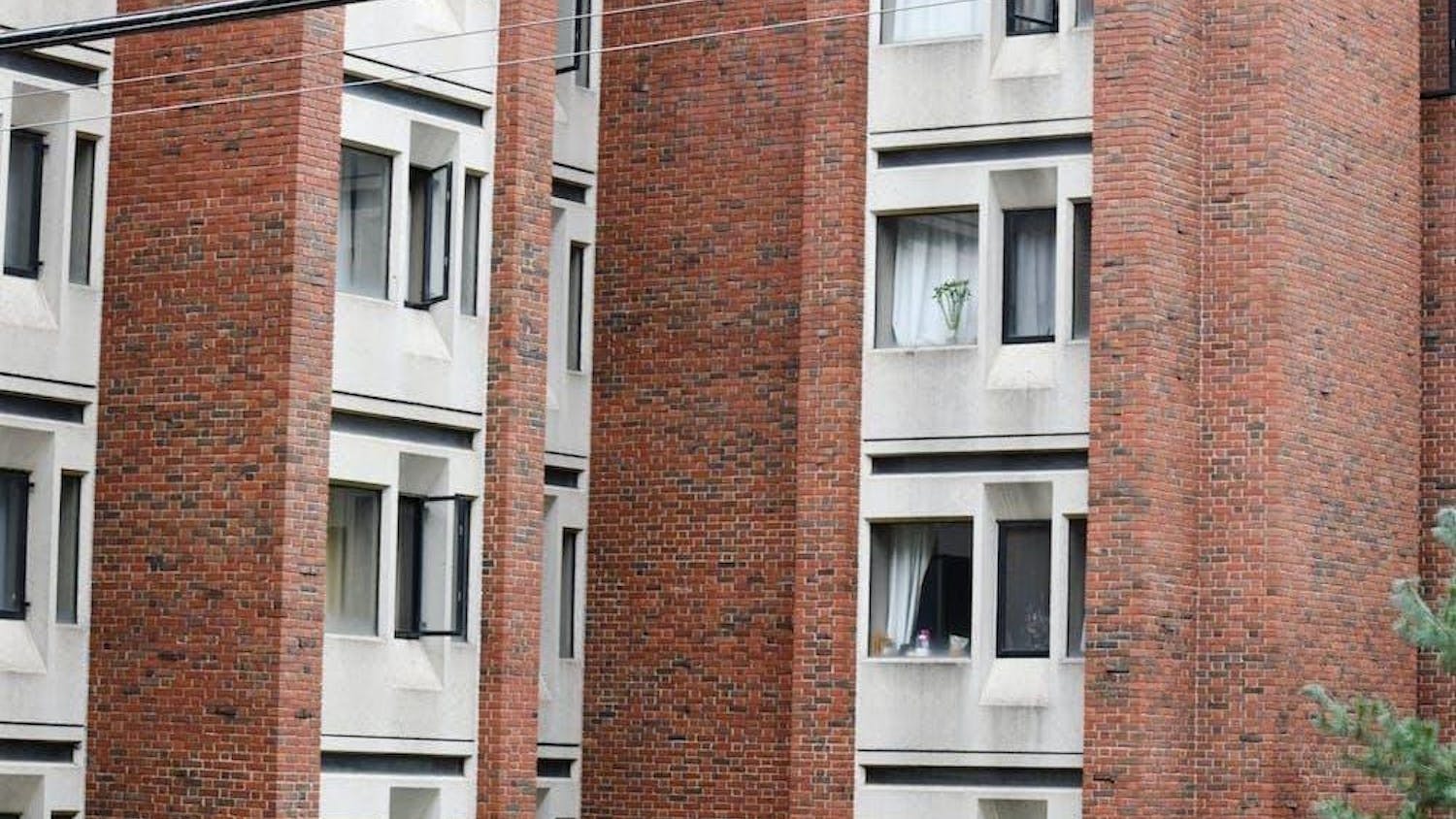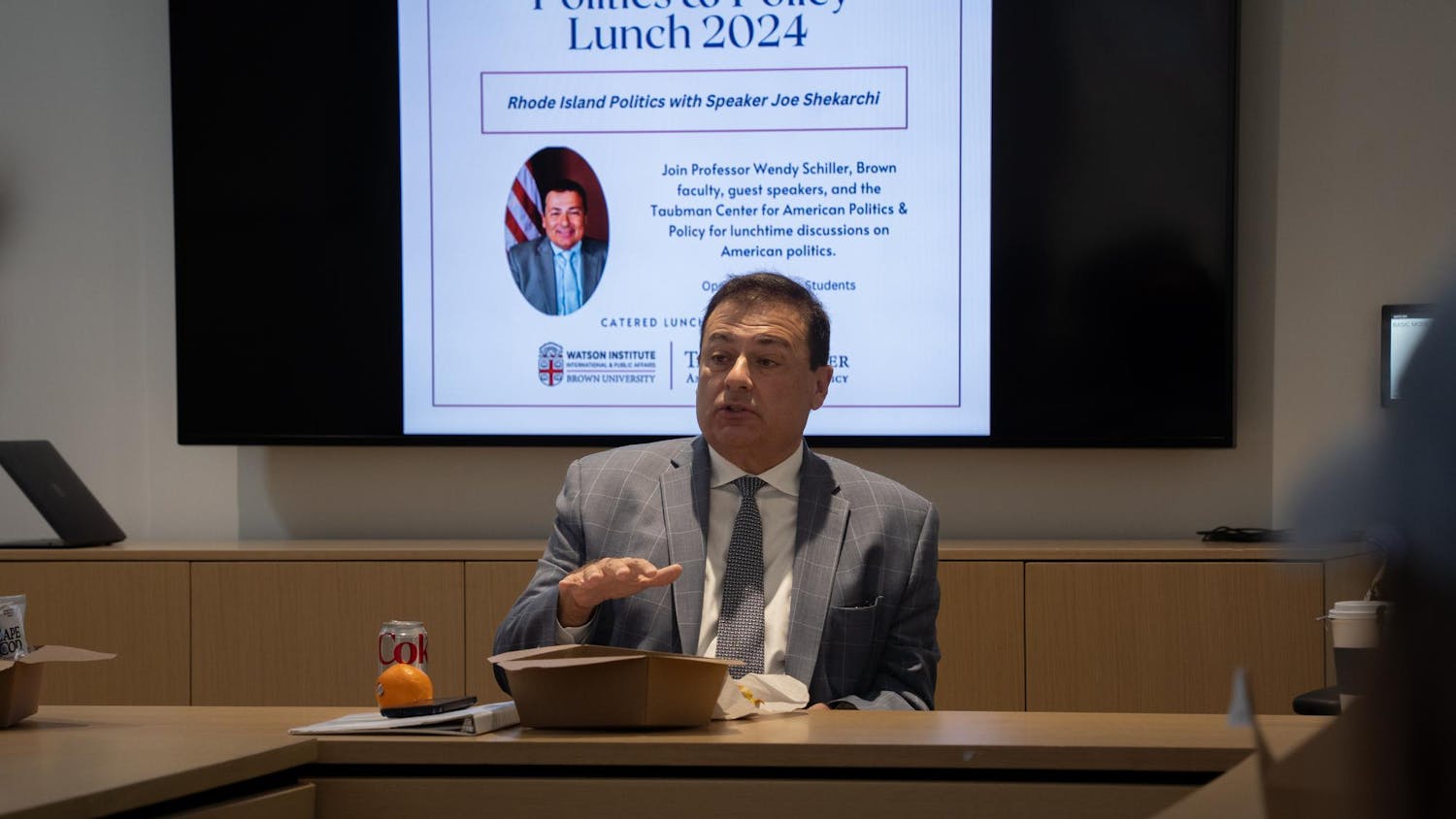The room was silent except for the squeak of markers against whiteboards. Messy letters filled the boxes, building corners with words intertwined. As white space disappeared, the crowd held its breath until, suddenly, Aaron Mazel-Gee '09 took a step back and threw up his hands. He had finished.
On Saturday, the Puzzling Association of Brown sponsored its first annual Brown Crossword Puzzle Competition. Hosted by New York Times crossword puzzle editor Will Shortz, the contest could barely be contained in MacMillan 117 as students and members of the larger community flooded in to hear Shortz speak and try their luck at the student-created puzzles.
The event's organizers — Dustin Foley '09, Joey Weissbrot '11 and Natan Last '12 — all came to Brown with a passion for puzzles.
Foley, who designs the daily puzzle comic "Enigma Twist" for The Herald, has been making mazes since elementary school and began delving into crossword puzzles in sixth grade. He constructed the crossword for his monthly school paper during junior and senior years of high school.
Weissbrot defines himself as more of a doer than a creator — he tackled the Times crossword every day in high school. Then, after finding out through a friend that Shortz takes a summer intern, Weissbrot spent last summer editing and fact checking puzzles at Shortz's home.
"Will's house is sort of the Mecca of puzzle making," Weissbrot said. "Constructors come to his house, hang out and do puzzles." Weissbrot met — and competed against — some of the Times' top puzzle makers.
Last has also spent time puzzling at Shortz's house. Until recently, Last held the record as the youngest creator of a Sunday Times crossword puzzle. To date, he has published nine puzzles in the Times, which he began submitting the summer after his sophomore year in high school.
Because Shortz knew both Last and Weissbrot would be at Brown this year, he suggested they meet up, start a club and organize a competition. Having "no idea how to get it off the ground," the two went to the Student Activities Office, where someone asked if they knew Foley, Last said. The duo e-mailed him and they hit it off immediately.
"Before meeting these guys, I had never met any other puzzle constructors," Foley said.
The competition was a "great way to kick off this association," Foley said. Though the group has not yet held regular meetings, they are interested in doing "puzzlish stuff" and hope to expand, Weissbrot added.
The association's founders created three of the four puzzles used at Saturday's competition. All were edited by Shortz and will appear in the Times within the next two weeks, which will be Foley's and Weissbrot's debuts.
"I'm not making any allowance because of the relative youth," Shortz said. "The quality of their puzzles is the same as any Times puzzles."
For many of the 300 people crammed into MacMillan on Saturday, Shortz was the main attraction. Students clapped and cheered wildly as he took the podium and screams of "I love you, Will!" punctuated
the applause.
Shortz spoke about his all-time favorite puzzles, many of which could be recognized from the hit documentary "Wordplay." These included a marriage proposal Shortz orchestrated for an avid puzzler and a puzzle from Election Day 1996, whose clue, "Tomorrow's Headline," could be answered with either "Clinton Elected" or "Bob Dole Elected."
"In my family, puzzling is a competitive sport," said Ariel Hudes '11. "And you don't touch a crossword that doesn't come from
the Times."
Hudes had originally intended to stay only for Shortz's opening remarks, but decided to participate in the competition for fun.
Participants could compete in one of three categories — undergraduates, non-undergraduates and pairs. At the start of each round, the constructor introduced his puzzle (except for the third puzzle, an as-yet unpublished creation by Times puzzlemaker Joon Pahk) before contestants flipped over their papers and began writing frantically.
Though accuracy was the most important factor for winning, timing was crucial as well. As contestants finished, they were assigned numbers to mark their spots and at the end of 20 minutes, all puzzles
were collected.
During the rounds, competitors were silent — those working as pairs communicated only on the grid. But as soon as time was called, contestants broke into a low roar of conversation centered on the puzzles. The five-minute breaks were spent rehashing the clues and answers.
"I knew that," one competitor groaned to a friend. "I just couldn't figure it out."
After three consecutive rounds, the judges finished scoring all the puzzles while Shortz entertained the audience with interactive word games — a special surprise even for the organizers, Weissbrot said.
Finally, the winners of the three rounds for each category were announced and the three undergraduate winners were called forward: Danny Sugar '11, Jack Gill '10 and Mazel-Gee.
At the front of the room were three whiteboards with drawn-on crossword grids, a sight many recognized from the documentation of the American Crossword Puzzle Tournament in "Wordplay."
The three contestants — and each member of the audience — received the final puzzle, and the finalists filled their boards with letters as a hush fell over the crowd. Sugar filled nearly the entire top half of his board before either of the other two competitors had made a dent. But they quickly caught up and all three were neck-and-neck until the last possible
moment.
"It really was unclear who was going to win," Shortz said, noting how exciting it was for the audience to watch.
"I was a little more nervous than expected," Mazel-Gee admitted. Though he does the Times crossword daily, he had never been in a tournament before and had been aiming to be one of the top 10 finalists.
All of the winners in each category received books of puzzles edited and signed by Shortz. He happily personalized the inscription for many of the winners.
Dan Katz GS, who is in his sixth and final year of studying mathematics at Brown, swept the non-undergraduate category, winning all three rounds. Katz is an avid puzzler and finished 18th this year at the American Crossword Puzzle Tournament, which Shortz hosts.
"I'm always in favor of more tournaments," Katz said. "The puzzles were great."
Shortz said he was "really pleased there are so many young people solving and making puzzles." The turnout was "wonderful" — Brown's tournament had 200 competitors, as compared to Harvard's 2008 contest, which boasted only 100 solvers, Shortz said.
The Puzzling Association had "no idea" what kind of turnout to expect, Weissbrot said, and was "really, really happy that so many people came."
"Overall, I thought it was great," he said.
After leaving Providence on Saturday, Shortz headed to Harvard to conduct a competition there, and will follow that with a contest at Yale. He has had summer interns from each school and was invited to host all the events. Puzzles from students at the other two schools will be published in the Times as well.
Reflecting on the enthusiasm of college students for puzzling, Shortz said, "It's good for the future of crosswords."




